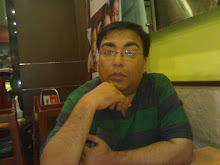 In a bid to provide primary healthcare services in rural India,the Ministry of Health of the Government of India has proposed a 3.5 years abridged medical course. The idea is to churn out doctors willing to work in rural communities faster. The proposal mooted by the health minister Ghulam Nabi Azad has drawn mixed reactions from various quarters. Many have argued that by introducing an abridged diploma course the government will be playing with the lives of the rural folks. The essential argument is that even the basics of medicine can not be taught in such a short period of time. Others have taken a contrary view, pointing out that replacing today’s rural quacks with doctors having a basic formal medical education will be a huge plus.
In a bid to provide primary healthcare services in rural India,the Ministry of Health of the Government of India has proposed a 3.5 years abridged medical course. The idea is to churn out doctors willing to work in rural communities faster. The proposal mooted by the health minister Ghulam Nabi Azad has drawn mixed reactions from various quarters. Many have argued that by introducing an abridged diploma course the government will be playing with the lives of the rural folks. The essential argument is that even the basics of medicine can not be taught in such a short period of time. Others have taken a contrary view, pointing out that replacing today’s rural quacks with doctors having a basic formal medical education will be a huge plus.
In rural India, where more than 60% of India lives access to good quality healthcare is minimal. The government has spent millions of rupees in trying to provide primary healthcare in these areas and has met with little success. The twin problems of medical infrastructure and trained people has stymied government effort for long. Of these, it can be argued that the infrastructure problem is rather easily taken care of, the government just has to find the will power and the money to build primary health centres. The bigger problem is of finding qualified and trained doctors to work in rural areas.
Forcing newly minted doctors from government-run medical colleges, which offer subsidised education is a sub-optimal solution. These doctors hailing from large urban centres have no desire to work in rural, underdeveloped areas, where they can not possibly have the lifestyle that they are used to. The divide between Bharat and India has ensured that the chasm is too big to bridge and these doctors and their patients have almost nothing in common.
In rural India today, primary healthcare services are largely provided by a class of quacks, masquerading as doctors. Illiterate rural folks have no idea of the knowledge or formal qualifications of these ‘doctors’. They do not have the courage or the wherewithal to find out the antecedents or the past experience of these physicians and the entire system works on blind faith. Usually, these quacks have some knowledge of medicine largely acquired by having worked as assistants to doctors in big cities. Thus, they are able to continue the charade by prescribing commonly used OTC medicines and some wide spectrum antibiotics, for almost all ailments. Many people recover from common ailments, those who do not or grow steadily worse are referred to real doctors in nearby towns and cities.In remote and far-flung areas, things are even worse. Faith healers and babas of various hues treat people using ’jhaad-phoonk’, which are nothing but ancient pagan rituals. This is the terrifying reality of the 21st century rural India.
In this context, it makes eminent sense to have a cadre of rural doctors with some formal medical education. They would be able to provide far superior care than what is presently available in rural India. That the government proposes to hire rural youths in this program will ensure that these doctors continue to live and serve in their own communities. Unlike, their urban counterparts, these doctors do not run the risk of being fish out of water in this environment.
The government should now swiftly move forward towards evolving a mechanism for setting up rural medical colleges and lay down guidelines for enrolling rural youths in these courses. It should set up a few rural medical institutes and a regulatory body to regulate the proposed system. The government must also apprentice these rural doctors in government hospitals for at least 6 months so that they learn the practice of medicine from senior and more qualified doctors.
This solution I know is far from ideal. It also smacks of a certain class bias (more qualified doctors for slick city dwellers, under-qualified and not as well-trained doctors for poor rural folks), but such is the reality of the urban and rural life in India that even an idea like this has its distinct merits.

1 comment:
There are many issues involved.It takes a lot of time to become good in the art of diagnosis and treatment.I do not know if 3 and half years are sufficent.After obtaining this degree,will the doctors be allowed to work in cities as well or will they be banned from working in cities?Is it possible to ban people from working anywhere they want?
Post a Comment